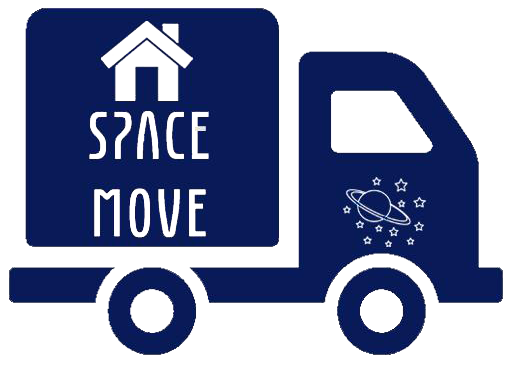In today’s fast-paced business landscape, efficient storage and warehousing solutions are paramount to the success of any company. Whether you’re a small startup or an established enterprise, making the right choice when it comes to storage and warehousing can have a significant impact on your operations and bottom line. This article will guide you through the essential considerations and steps to take when selecting the best storage and warehousing company for your needs.
Table of Contents
Introduction
Understanding Your Needs
Location, Location, Location
Facility Infrastructure
Security Measures
Scalability and Flexibility
Technology Integration
Staff Expertise
Cost Analysis
Customer Reviews and Reputation
Legal and Regulatory Compliance
Environmental Considerations
Insurance Coverage
Comparing Multiple Options
Making Your Decision
When it comes to storage and warehousing, one size doesn’t fit all. Companies have varying needs, and finding the perfect fit requires careful consideration of several factors. Let’s delve into the steps to take when choosing the best storage and warehousing company.
Understanding Your Needs
Before you start evaluating potential companies, take time to assess your specific storage and warehousing requirements. Are you dealing with perishable goods, delicate items, or bulk commodities? Understanding your needs will guide your search and ensure you choose a company that can cater to your unique demands.
Location, Location, Location
The location of your chosen storage facility can significantly impact your logistics operations. Opt for a facility that is strategically located, allowing for easy access to transportation hubs and your target markets. This can help streamline distribution and reduce transit times.
Facility Infrastructure
The physical infrastructure of the storage facility matters. Check for modern amenities like climate control, specialized storage spaces, and advanced handling equipment. A well-equipped facility can ensure the safety and integrity of your stored goods.
Security Measures
Security is non-negotiable when it comes to storage and warehousing. Look for companies that have robust security measures in place, including surveillance systems, access controls, and fire prevention mechanisms. Your goods should be protected around the clock.
Scalability and Flexibility
As your business grows, your storage needs may change. Choose a company that offers scalability and flexibility in its services. This means the company should accommodate your changing requirements without disrupting your operations.
Technology Integration
In the digital age, technology plays a crucial role in warehousing operations. Opt for a company that integrates technology for inventory management, order tracking, and real-time reporting. This enhances transparency and efficiency.
Staff Expertise
The people managing the facility are just as important as the infrastructure itself. A company with experienced and knowledgeable staff can offer better solutions, handle unforeseen challenges, and provide valuable insights into optimizing your storage.
Cost Analysis
While cost shouldn’t be the sole determinant, it’s undoubtedly a crucial factor. Compare the pricing structures of different companies, keeping in mind the range of services they offer. Choose a company that offers value for money and aligns with your budget.
Customer Reviews and Reputation
Nothing speaks louder than the experiences of previous clients. Look for customer reviews and testimonials online to gauge the company’s reputation. Positive feedback is a strong indicator of reliable service.
Legal and Regulatory Compliance
Warehousing involves legal and regulatory aspects, including licenses, permits, and compliance with safety standards. Ensure the company adheres to all necessary regulations to avoid potential legal hassles down the line.
Environmental Considerations
Sustainability is a growing concern. Choose a company that implements eco-friendly practices in its operations. This not only contributes to a better environment but also reflects a forward-thinking approach.
Insurance Coverage
Accidents and unforeseen events can happen. Verify the insurance coverage that the company provides for your stored goods. This ensures you’re protected in case of any mishaps.
Comparing Multiple Options
Don’t settle for the first option you come across. Collect quotes and information from several companies. This allows you to make an informed decision based on a comprehensive analysis.
Making Your Decision
After careful evaluation, it’s time to make your decision. Select the storage and warehousing company that best aligns with your needs, offers comprehensive services, and demonstrates a commitment to quality and reliability.
Conclusion
Choosing the right storage and warehousing company is a critical decision that can impact your business’s efficiency and success. By considering factors such as your specific needs, location, security, and scalability, you can make an informed choice that sets the stage for seamless operations and growth. Spacemove Kenya should be first on the list of the companies to consider.
FAQs
What is the importance of choosing the right storage facility?
Choosing the right storage facility ensures the safety, accessibility, and efficient management of your goods, contributing to smooth business operations.
How can I assess a company’s security measures?
You can assess a company’s security measures by inquiring about surveillance systems, access controls, fire prevention, and past security incidents.
Is cost the only factor to consider when choosing a storage company?
No, while cost is important, factors like location, infrastructure, security, and scalability are equally crucial for making an informed decision.
Why should I prioritize staff expertise in a storage company?
Staff expertise ensures that your unique storage needs are understood and met, and can provide valuable solutions when challenges arise.
What role does technology play in modern warehousing?
Technology enhances efficiency and transparency in warehousing by facilitating tasks like inventory management, order tracking, and real-time reporting.




